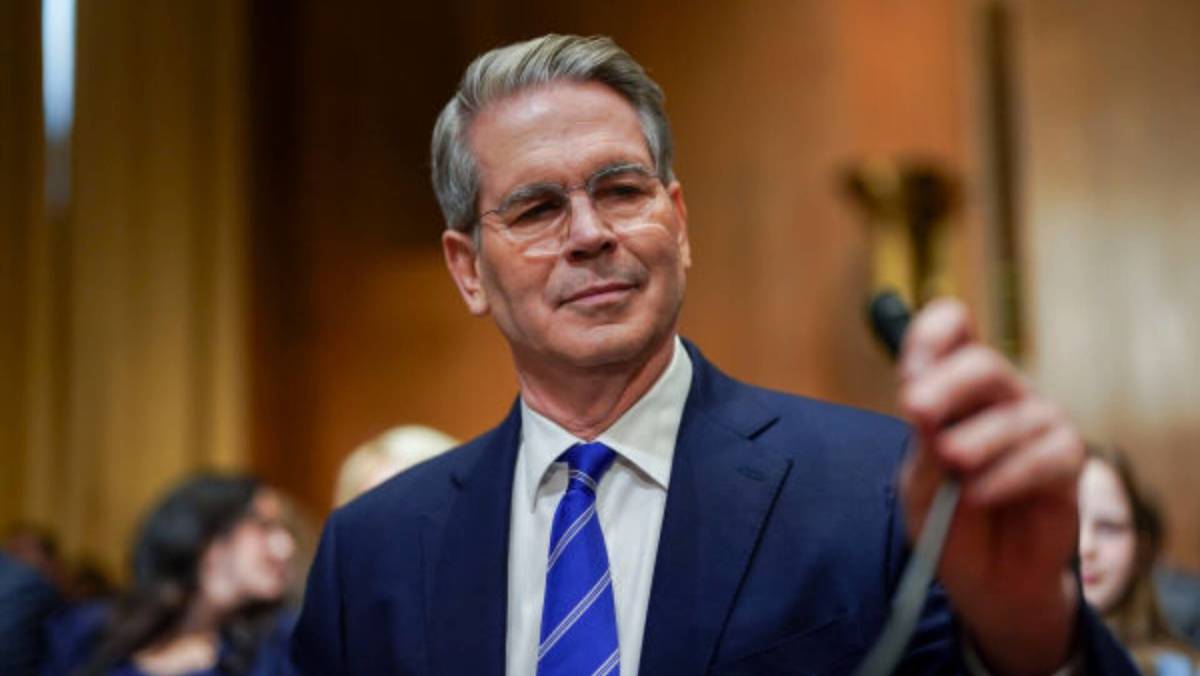Congress has long suffered from a reputation that it’s interested more in padding pockets than in solving Americans’ toughest problems.
Perhaps there’s no more glaring example of the conflict of interest in Washington than elected members’ ability to actively buy and sell shares in publicly traded companies that could be sent soaring or reeling by legislative and spending decisions.
Many believe that elected officials should be barred from trading stocks. Others have started using publicly released information on their trading to influence their own investing decisions.
💵💰Don’t miss the move: Subscribe to TheStreet’s free daily newsletter💰💵
Nancy Pelosi is perhaps the most followed active investor in Washington, but she’s far from the only person buying and selling individual stocks. The list crisscrosses political parties.
This week Treasury Secretary Scott Bessent delivered a strong message on members of Congress owning individual stocks, explicitly calling out Representative and former Speaker of the House Pelosi and Sen. Ron Wyden (D-Oregon).
Congress has a big stock trading problem
This is far from the first time that owning stocks or other investments has raised eyebrows among voters.
Concern over Congress members trading stocks was so high that it passed the STOCK Act in 2012, which explicitly prohibits insider trading and forces members to report transactions publicly within 45 days.
The STOCK Act is an improvement, but it hasn’t stopped Representatives and Senators from investing in stocks.
A study of the 117th Congress in 2021 found that 53% of Congress members owned individual stocks and only 7% didn’t own any stocks or widely held investment funds, such as mutual funds, according to the Campaign Legal Center.
Related: White House pitches jumbo Fed interest rate cuts starting in September
Only 2% used a qualified blind trust, which creates a firewall between investments and members of Congress, preventing them from knowing their investments.
Stock ownership is widespread across both political parties, with 54% of Republicans and 46% of Democrats owning stocks as of 2021.
Those findings include trades by Congress members, spouses, and dependent children, including buys and sells made by Pelosi’s husband, who she says handles their investing.
While Pelosi’s trading disclosures are closely watched, partly because of her husband’s prescient options investments in high-tech stocks, her portfolio was far from the best-performing in Congress last year.
Congress members generated juicy returns in 2024
Unusual Whales tracks buys and sells by members of Congress via periodic transaction reports filed within 45 days of any investment exceeding $1,000.
In 2024, the S&P 500 returned nearly 25%, including dividends. However, according to Unusual Whales estimates, Democrats returned 31% on average, due mainly to tech stocks, while Republicans gained 26% on average, thanks largely to financials and commodities.
Since periodic transaction report filings aren’t provided in real time, Unusual Whales has to make assumptions, which could mean their estimates are off the mark.
Still, according to its calculations, its estimated returns for the top 10 members of Congress in 2024 are pretty eye-popping and likely to make many investors jealous:
- Rep. David Rouzer, Republican, North Carolina: 149%.
- Rep. Debbie Wasserman Schultz, Democrat, Florida: 142.3%
- Sen. Ron Wyden, Democrat, Oregon: 123.8%
- Rep. Roger Williams, Republican, Texas: 111.2%
- Rep. Morgan McGarvey, Democrat, Kentucky: 105.8%
- Rep. Larry Bucshon, Republican, Indiana: 98.6%
- Rep. Pete Sessions, Republican, Texas: 95.2%
- Sen. Susan Collins, Republican, Maine: 77.5%
- Rep. David Kustoff, Republican, Tennessee: 71.5%
- Rep. Nancy Pelosi, Democrat, California: 70.9%
Secretary Bessent supports banning Congress from trading stocks
On Aug. 13, the Office of Government Ethics reported that Treasury Secretary Bessent, a Wall Street veteran trained under the legendary hedge fund manager Stanley Druckenmiller, had yet to fully divest holdings as promised in an ethics agreement signed in January.
Bessent responded by saying that he’s liquidated more than 90% of the $1 billion holdings and that the remaining holdings are illiquid farmland that will be liquidated by year’s end.
The disclosure renewed debate about what politicians and executive-branch members should be allowed to own as investments.
Bessent delivered a blunt take on the matter.
“I am pushing for a ban on single-stock trading in Congress,” wrote Bessent in a post on X.
Perhaps unsurprisingly, given his role in the Trump administration, he specifically called out Democrats Pelosi and Wyden.
“The American people deserve better than politicians like @RonWyden
and @SpeakerPelosi
with hedge-fund level returns,” wrote Bessent. “Public service should be about serving the people, not getting rich.”
“If any private citizen traded this way, the SEC would be knocking on their door,” said Bessent.
Whether Bessent’s support for a ban results in actionable legislation remains to be seen, given that proposals have won mixed support in Congress over the past few years. None of them have become law.
Related: Billionaire Bill Ackman floats bold fix for the housing market crisis



















